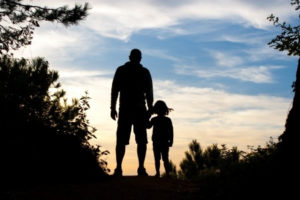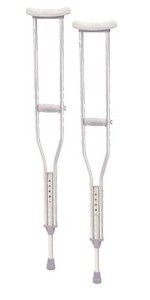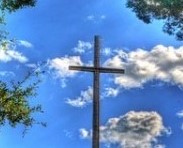Something is amiss. What? What is it?
The mutter passing through Melchior’s barely-parted lips was for no one’s ears. In one fashion or other – half-whispered, barely voiced, even silently within his thoughts – the nagging persisted. Dozens of times it came since passing third watch. He had keenly followed his animal’s motions and moods from midnight till now.
Beams from a rising sun already stalked the caravan’s rear flank, sketching long, thin shadows on the sand out ahead. At least with coming of light he would gain advantage – would examine each hoof – above and beneath. What is it? What troubles my beast? Melchior’s gravelly voice took a stronger yet warm and pitying tone, directed to the animal herself. Flanked by her pair of lavishly furry ears the camel’s head moved just beyond arm’s reach. But for this distance, Melchior’s hand would have rested here, consoling.
I feel beneath me no limping gait. You seem well enough, my desert lady. Yet. . .
He stroked the lining of the cloak at his shoulders (fashioned itself of camel hair). Melchior’s surprise at a tear forming in his eye provoked clearing of his throat. He glanced about, gruffly swiped at the tear. The priestly magus was drawn again to reflection. Addawser – “the large one” – had long been his beast and was never, to him, a means of mere utility.
Ah no, no mere camel, Addawser. Strong-willed at times? Ha! At times? Haha! The animal answered Melchior’s caress to her shoulder with a throaty rumble. The master grew reflective.
They had – each in the company of the other – weathered thirty-eight summers. Melchior raised his vision above the horizon. He was certain of a star-blanketed sky as if it were still full night and they still visible. He voiced petition to the great deity of skies, hoping an attentive ear might heed. May Constellation’s God grant me and Addawser more good summers together. May it be . . .
The caravan drew to a halt. The sun behind them edged upward.
Alright, Good Lady Addawser. We rest now. At her master’s voice, the camel lowered. He dismounted. A studied survey of her hooves followed. Alright, grand lady, let’s solve this nagging riddle.
The priest’s thumb-stroke halted. The pebble – lodged in the animals left hind hoof – was small enough to have been easily missed. Not harmful, to be sure, and only barely felt by the camel herself, it could be certain. Still, Melchior knew his Addawser. Knew her pleasure that the irritant – slight though it was – had got fished out by the aid of his pesh-kabz. I should have thought, my Addawser. Yes, I might have guessed. Foolish master, foolish, foolish master. He chuckled. From the camel’s interior rose another throaty rumble. At this, two servants shared knowing glances.
To speak to one’s camel is no rare thing – most common, in fact. Loud rebukes, angry scoldings. But words of friendship. . . of warmth? Ah, hardly. Sharing, as they seem, a comradery? Rare as oases in the Persian desert.
The nomad priest-scholar fingered his pesh-kabz a moment more – its knife-point keen enough for the stone’s removal, enough to penetrate battle armor if need be. He looked at the pebble – backward and forward he rolling the gritty stone between forefinger and thumb. Melchior sighed. He rendered a wholly new question – though whispered as he had done before.
What of my own pebble?
The more he mused, the more fitting seemed the comparison. Indeed, so fitting the matter of Addawser’s pebble rekindled the old disquiet within.
He spread his mat at the base of a crag where he hoped for daytime slumber. I yet have the feeling. Well, to be sure the feeling itself is different. Yet, much like the matter with Addawser before her riddle was settled.
My soul is troubled by something – as with a pebble gone unfound in my sandal. There is this in my soul. The feeling. So primary to his thinking this matter, Melchior mused further.
My life goes forward by day, by night, but to where? I gain distance, yet to what purpose? Within, I feel yearning. Toward something elusive. As a phantom. So, turning inward to himself, for what – my soul – do I yearn?
The esteemed Melchior drew a sigh. Emotion threatened to prevail, akin to that which for some prompts sobbings deep and long. With effort he willed himself quiet. Yet the question remained, What troubles me? Ah! The very question I labored with for my camel through fourth watch. . . What troubles me? God of all constellations. Shall I ever know? Where is my place of rest? He rolled to his side. Drained – body and mind – Melchior slept.
The depth of sleep into which he sank sweetened Melchior’s waking moments hours later. Such restfulness – the kind he’d nearly forgotten through this arduous journey – revived in him an earlier eagerness. The focus, the purpose of their westward trek.
Dark revisited the land, as did the prominent star. Its presence, by now assumed, nearly as much as sought after – like a valued, unparting friend.
The caravan snaked further along a patchwork of desert and sagebrush.
The priest shifted in his saddle. With it came, it seemed, a shift in mood. Of strong stirring. We are near. I feel it. Seldom was the priest known to whistle. Now – for a short time at least – a lively melody from the Persia’s hinterland escaped his lips.
From beginning of fourth watch the caravan undertook a gradual climb. Addawser served this leg of the trek as lead camel. Thus it was her nose that first passed into the great escarpment overlooking the town. The star sat immobile. It’s light stretched downward. The rays enveloped a domestic dwelling and its close-by animal shelter. Melchior’s vision – clouded now by ever-moistening eyes – held steady to the sight. He could not have imagined a common home scene stirring such emotion. Drawing his animal to a halt, he rested in the saddle – his spirit hushed. Aware that a long yearning was nearing a threshold passing at this place – not far from the Great Sea. This place, in this dwelling.
In that moment came another knowing – more deeply – of a curious kind. Knowledge that his yearning was not to fully end, not finish here. Not fully. Rather the yearning would be engaged. As a satisfying kind of yearning. In communion, somehow with another. And still others in a lesser measure. Here. Soon. Such mystery in this entire venture. But compelling. Mighty in its pull.
Melchior breathed in – his mind going to the cargo sack at Addawser’s side. The frankincense for a king-child. His eyes wrinkled to a smile. He felt himself within giddy as any child.
Leaning forward he whispered, Addawser, it is my time. The pebble shall dislodge from the sandal of my soul. The nagging shall soon quiet. It quiets even now, my desert lady. Silence hushed all space from them to the light-bathed dwelling. Then was broken. Addawser sounded her throaty rumble. Melchior – in that moment – laughed more heartily, more freely than he had in many summers.
©2015 Jerry Lout





